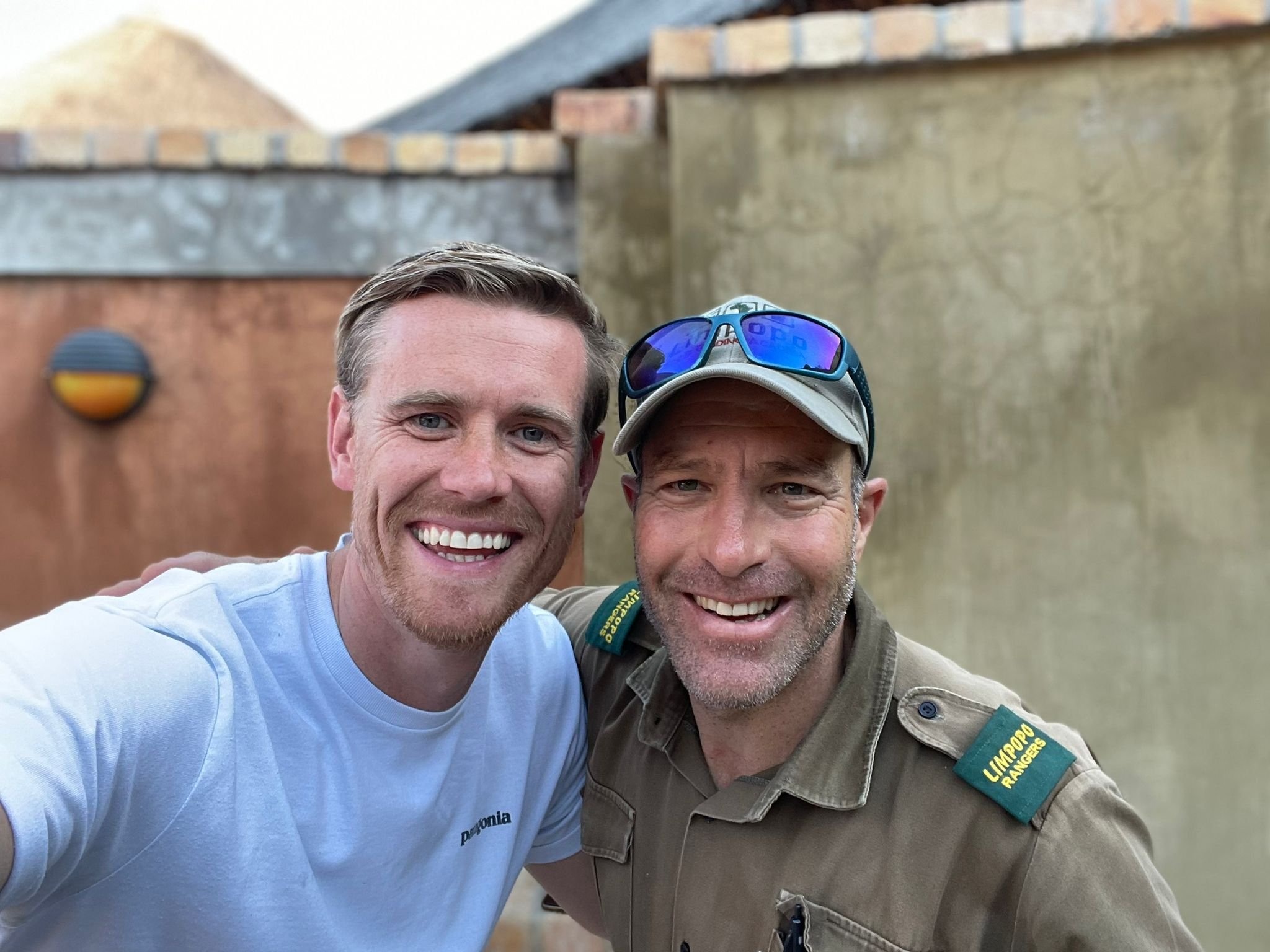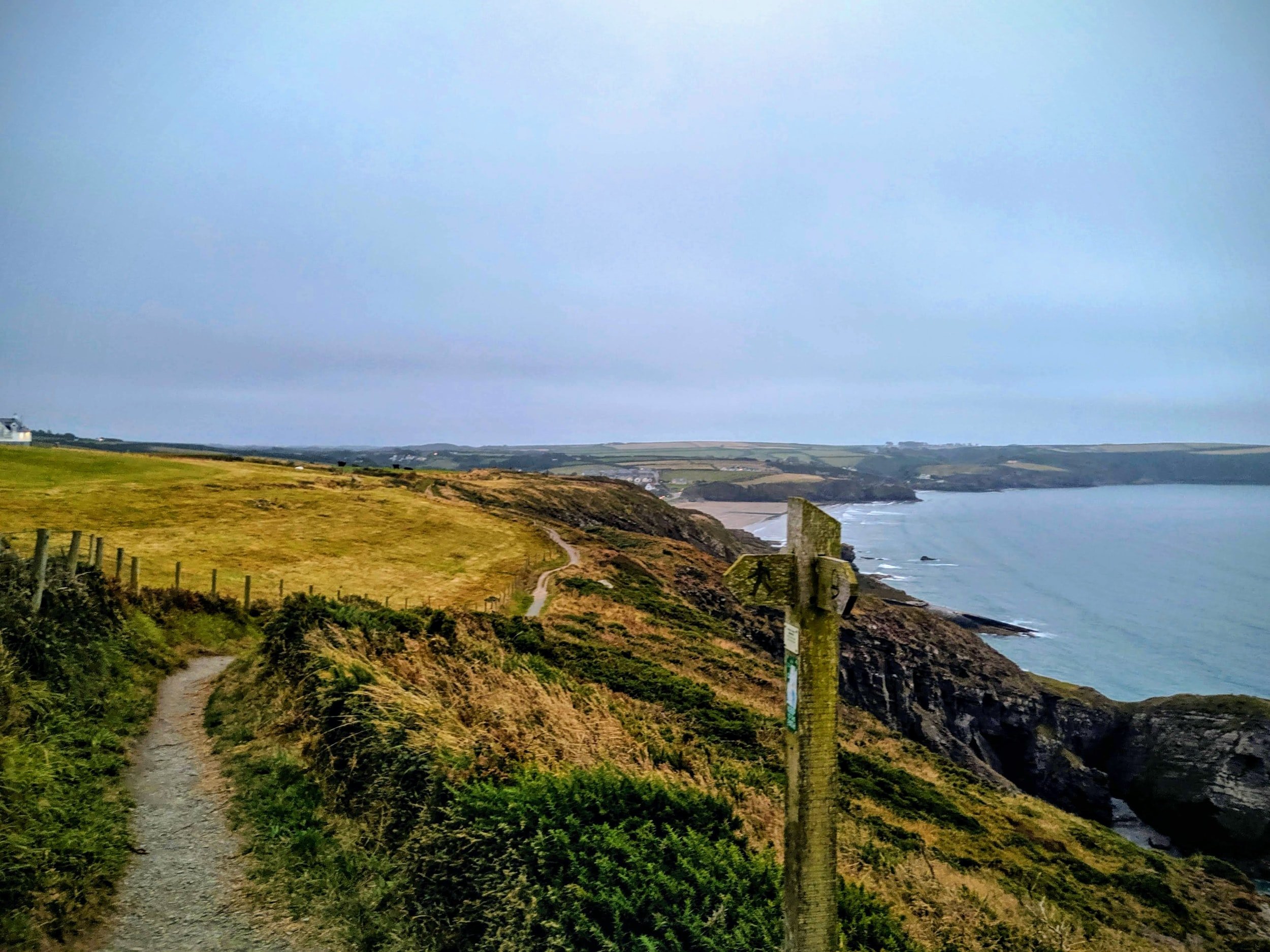Looking for a Hands-on Conservation Experience? Introducing our South Africa Field, Track & Guide Project….
Author: Claire, Head of Marketing.
Read time: 4 minutes
There is a particular destination and project in our portfolio that is very special to us here at Flooglebinder. It was here, deep in the African bushveld that the Flooglebinder concept was born; where the dream to run conservation field trips for Animal Management students first became a reality and where we met our incredible project partner, who we still run trips with us year in, year out.
In this blog we explore what makes the Flooglebinder Field Track and Guide project in South Africa such an incredible, transformative experience for Animal Management students, we’ll deep-dive into the origins of this project, its mechanics and what a day in the life of a student would look like.
We co-created our ‘Tracking and Field Guiding’ itinerary in South Africa with the sole intention of delivering an experiential study trip for Animal Management students looking for a first introduction to what a career in conservation could look like, all whilst achieving a recognised qualification. Forward-wind nearly thirteen years and this project remains a firm favourite with students and lecturers alike.
In order to give you a real insight into this project, we chatted to a long-term Flooglebinder friend and Manager at our Field Guiding Academy (FGA) project in South Africa and asked all the questions we felt you (as a student or lecturer) might ask when investigating options for unique educational trips that will specifically enhance Animal Management and related studies. We know this project is expertly run, beautifully orchestrated to compliment your studies and life-changing for those who spend time there, but let’s hear it from our man in South Africa….
Can you tell us why you opened the FGA?
“I had been a training officer at a mainstream game lodge for 5 years prior to starting FGA in 2003. We had successfully opened an internal training school for guides within our group of companies and noticed that there was a need for the same facility for the wider public realm, ie: people trying to get into the industry. South Africa had not previously had a National Qualification system for Field Guides and when that began to materialise from 2001 onwards, it was a natural progression for me to go off on my own and start the FGA”
“A Field Guide, as a person, is the link between nature and the guest in the natural environment. Whether they are local South Africans or travellers from abroad, an individual’s wildlife experience in the African bushveld can be “make or break” depending on who is guiding them.
How did the Flooglebinder partnership come to exist?
“Flooglebinder co-founder Ian Taylor was a student on our November 2009 FGASA course – that is the entry qualification for Field Guides in SA. He was impressed by our product and immediately recognised the potential for a bespoke version of our services. Ian spent several years planning and strategizing around the concept and in about 2012 negotiations began. A few more years went by until we did a pilot project, initially with Flooglebinder sending us individuals on FGASA courses, while Ian and his partners tweaked their Africa product, and in 2017 we began taking in Wildlife Management students from them. Since then we have hosted multiple Flooglebinder trips per year and have settled upon a syllabus that involves Wildlife Management introduction and the CyberTracker Track and Sign training course. This has proven to be a highly successful project and all feedback is positive.”
Could you explain in layman’s terms what 'Field Guide Training' is?
“A Field Guide, as a person, is the link between nature and the guest in the natural environment. Whether they are local South Africans or travellers from abroad, an individual’s wildlife experience in the African bushveld can be “make or break” depending on who is guiding them. South Africa has had a solid National Qualification system in this regard since 2001 and our Field Guiding Academy is at the heart of that. We have taken it upon ourselves, as an industry leader in Field Guide Training, to not only meet the requirements of the NQ framework but also to be endorsed by The Field Guides Association of Southern Africa (FGASA) – a prestigious status that requires the highest level of staff, training and standards. To answer the question: Field Guide Training is the process of preparing entry-level guides to enter that industry and to ensure that they continue to meet the standards of FGASA throughout their development in the industry. With the Flooglebinder product, we have created a hybrid product – taking the most relevant aspects of the FGASA and CyberTracker systems and applying it to modules that suit the needs of Animal Management students from abroad”
This type of trip provides not only solid and industry-recognised qualifications but also contributes enormously to a students’ personal development and offers some clarity around choosing future career or HE pathways. From 2025 UCAS applications will no longer accept personal statements; students can now expect to be asked three key questions about why they want to study their chosen course, how their previous studies have qualified them, and what they have done outside education to prepare for university study.
We strongly believe that projects such as this are hugely beneficial for students choosing to move on to University. The new application process means students need to provide tangible evidence of personal experiences and other activities they have undertaken outside their education to further demonstrate their suitability for the course.
Build confidence, resilience & gain essential life-skills
Perfect introduction to in-situ conservation
Presents an excellent example of learning outside the classroom
Gain solid, industry-recognised qualifications
On that basis could you explain why a trip to the FGA would be helpful to a student preparing for higher education?
“In summary, not only do we teach bush skills and expose students to all aspects of nature, we also work on their personal development, especially that of young people. It is a difficult world to navigate these days and we help our students to build inner confidence, to find their true potential and to ignite a fire of passion within. All of a sudden studies in animal management and a similar nature-based course at university take on a whole new perspective and they are able to take their African experience and apply it to their course. Mostly they want to get that university degree under their belt so that they get back into nature one day. Presumably, they have chosen conservation-type courses due to a love for nature – we put that theoretical concept into tangible learning.”
Does the project require good teamwork skills, communication skills and organisation skills?
“All of the above are ESSENTIAL to a student’s personal growth and success on this project. They only get out of it what they put into it. There is no place to hide – if you do not throw yourself headlong into it, you probably will not get the desired result. Why spend all of that time, effort and money on a big Africa trip if you are not fully committed? Sometimes it takes a few days to get them out of their shells – but that we do!”
Why should colleges and students work with your FGA when there are so many other study trips and projects to choose from and what type of qualifications can they expect to achieve?
“We are a trusted brand in the industry and have been delivering exceptional quality training and assessment of guides, trackers, and wildlife management students for the past 21 years, under that banner. Prior to that, our founder had been delivering the same product at a private game reserve, thus we have more than 25 years of experience in what we do.
Participants on the Flooglebinder Africa project can expect to receive training and assessment on the following components:
Introduction to Wildlife Management – A short introductory program with theoretical and practical aspects relating to the day-to-day running of game reserves in Africa. From physical maintenance of roads and fences to ecological aspects such as monitoring and tracking animals, the entire conservation function is covered at an introductory level. This gives participants a taste of what a career in conservation might involve – and hands-on participation in whatever might be happening on the game reserve at any given time.
CyberTracker Training and Evaluation for Track and Sign of Animals - The CyberTracker system is renowned as the leading training and evaluation system for trackers around the world. With chapters in Africa, the USA, UK, Europe and more, skills transfer and integrity is maintained for generations to come. Flooglebinder students have the opportunity to be a part of that community – not only benefitting from the training but also having the opportunity to be assessed and certified at the end of the course.
Depending on their particular curricula, some students have the opportunity to pick up course credits towards their studies back home, simply by participating in Flooglebinder projects in African Ecology.
Once qualified, what types of careers could this qualification lead to?
“In the case of full, FGASA students who attend a minimum 2-month Field Guide course, they can enter the industry as Safari Guides, which then opens doors to other career options such as ecology, reserve management, lodge management, anti-poaching, monitoring work and more. Others go on to be career Safari Guides, leading bespoke trips through Africa, or possibly exploiting opportunities at private game reserves in Africa. All of the above require higher levels of study and qualification and many years of experience in the industry, but it all begins with FGASA “Level 1” – which is seen as the foot in the door of the industry.
In the case of Flooglebinder participants who attend short, experiential trips to SA, the course serves as an introduction to potential careers in conservation in Africa. At the very least it is industry experience to compliment their ecological or other studies back home, yet at the same time they can achieve an actual CyberTracker qualification in Track and Sign Interpretation – this is recognised globally. If they follow up on the tracking aspects, further training and evaluation leads to higher levels of qualification as trackers. These people are active in Wildlife Biology, monitoring of animals, research projects, anti-poaching and more.
In summary, these are entry-level courses to get a taste of the industry – and it is up to the individual as to how far they will take that journey. Ian Taylor is a prime example – he built upon his University studies by completing a FGASA Field Guide course, and now not only leads trips around the world, he is also a business owner in the eco-education industry.”
Why are in-situ, hands-on experiences so vital for students - and why South Africa?
“This project allows students hands-on experience on game reserves in South Africa. SA is well known for its high-quality conservation models and to be part of the day-to-day functions of reserve management and animal tracking is invaluable. The students of said college programs may be able to pick up course credits by attending this project, but even if that option is not available, they will benefit immensely from being able to put theory into practice. It's one thing to learn about the subject matter at Uni – and another matter entirely when one has the chance to experience it first-hand. The unique synergy between Flooglebinder and FGA facilitates that opportunity for participants on the Africa project.”
Choosing a destination for your study trip can be overwhelming and selecting an overseas destination even more so. We know that students want to grasp exactly how their time will be spent on a trip, how their day will be structured and what will be expected of them. We always do our best to provide our colleges and students with detailed information about their itinerary and launch the project to them in person, before they fully commit to the trip, but it’s not always easy to explain to a student how they might feel when they are on one of our projects! So let’s get into the details….
Could you tell us a little more about the physical environment around the camp and why students will feel closer to nature when they are there?
“The weather is mild most of the year, nothing like UK winters, but it can dip below zero at night during our winter months (mid-May to mid-Aug). Daytime temperatures are always fine, although during summer it can get really warm (30 deg C +). Layers are the answer and just apply that to the time of year.
We are lucky to be in a transitional zone, not only between the grassland biome of Gauteng and the Savanna biome of Limpopo province, but also between the arid western regions of SA and the wetter east.
All of that coupled with the fact that we sit on top of 2 major geological events (Transvaal Sea and Bushveld Igneous complex), results in an amazing array of animal and plant life – a very high species diversity. Not only are we home to Africa’s Big 5 (with both black and white rhino); but we also host charismatic species such as spotted and brown hyaena, cheetah, hippo, Nile crocodile, giraffe, zebra and more. Exceptional birdlife and an array of habitats, make for a unique African experience. Bushveld sunrises and sunsets top it off and the sound of jackals calling, hyaenas whooping and lion roaring at night will not only send a chill down your spine but also make you feel safe and comfortable in your safari tent!
We have an open camp and all of the above and more walk through the camp whenever they want to. Participants must follow our safety protocols and our experienced guides will make them feel safe and happy.
The ‘Nature Immersion Method’ of training can only be fully appreciated by being a part of it. Born of the experiences of FGA founder, Mark, a training system for rookies in the industry was developed. By exposing candidates to every aspect of nature, by living, breathing and feeling nature all around you 24/7, one is able to de-wire, unplug and get off the screens, such that natural learning starts to take the front seat. We do not have Wifi in camp and encourage students to put their devices away and open their eyes, ears and all other senses to the wonder of nature. Only by living in nature for an extended period of time, can one fully appreciate its splendour. Our trainers will constantly deliver information and if one is receptive to it – they will learn. Our Nature Immersion Method involves being in that very open camp for your downtime – and in the field for the rest – practical learning day in and day out. Whether it is a serval hunting vlei-rats in your back yard….or a pair of Cape Clawless Otters teasing you from the lazy Boekenhout river that runs past camp….immersed in nature you will be.
Oh….and there ‘aint no malaria here – that’s right, Big 5, malaria-free and 90 minutes from the airport – this is actually paradise”
Can you explain how you expect a student to feel after a trip to FGA? You live and breathe this and must see students react and change in this new environment. A big question, but how does it transform perspectives and change perceptions?
“So many aspects to discuss. We have had students flush anti-depressant meds. We have had people pack up their lives abroad and move to Africa (quite common actually). We have had people use this course as a stepping stone to many other career choices – or possibly they simply find themselves in Africa. We are talking about discovering a profound connection with nature. Humans were not made for the city – we were designed to live in harmony with nature – and if our FGA can make that happen for as many people as possible – we will be very satisfied!
Feedback from students is typically highly positive – many want to come back, and some do. They feel liberated and exhilarated after their Africa trip – certainly, they will experience change in their lives. We are all about developing people and if that is academic, so be it, but if it is internal, we are very pleased. Typically young people feel more confident and better equipped in life after time with us. It forges an appreciation for nature and a longing to spend more time in the natural world. The Africa bug bites big and there is little you can do to stop it!
At the very least they will understand the web of life and potentially tread more lightly in their urban lives back home – at best they will take their Africa experience, build upon it – and develop a career going forward, using the experience they have taken from this trip. I think the consumer perception changes. Less screen time means more me time. Without being bombarded with marketing at all times, you can reset and reaffirm your own sense of self – we see students grow more confident whilst they are here and start to have fun. They become happier. They learn to get by with less. A warm shower is a blessing and toilet paper is used sparingly – we get back to our needs and not our wants!”
What would a typical day look like for a Flooglebinder student?
Wildlife Management section (5 days):
Early morning and late afternoon bush excursions by vehicle and on foot – as much as possible to do with practical aspects of reserve management, but also simply approaching wildlife and observing behaviour, all expertly interpreted by our instructors and guides.
Midday lectures, projects and downtime – some academic study, but also practical learning. Whether it is game census techniques or how to manage trap cameras, there is always some learning on the go.
Duty teams get involved with camp life – vehicle checks and maintenance (safari game viewers), making fire, basic outdoor cooking skills, firewood collection, camp cleanup and more. Team building and team dynamics – interpersonal skills and working in a group.
Stargazing at night and campfire stories after a long day in the bush.
Track and Sign Interpretation (5 days):
4 days of intensive training on all possible signs of everything that moves in the bush. Mammals, birds, reptiles, amphibians, arthropods and more are all investigated. Tracks, droppings, scrapings, burrows – you name it, we ID it. On the ground, in trees and even underwater – if it leaves a sign, we will ID it. We will teach you by testing you – all day for 4 days in the field. Regular camp life at night and picnic lunches in the bush.
Day 5 is the CyberTracker evaluation – put your learning to good use and gain a level. Even if one does not crack a CyberTracker level (starts at 70%), participants should be able to show basic competence and earn their internal attendance certificate. Those are not issued if one misses excursions or is “not there” mentally. Results are always an indication of effort put in – and typical bell-shaped curves are produced. The assessment is open-ended and your certificate level is based only on your result.
Finally, day 11 – pack up and go home – feeling full and whole. A person again!
What range of animals can they expect to see in their natural environment?
“So many! Only Wild Dog is currently absent from this system (but may be reintroduced in the future). Bearing in mind that it is a savanna biome – we do not have desert or forest dwellers. All manner of plains game, all the big 5 and more – basically every savanna predator, except wild dogs. And that’s just the mammals!
More than 350 bird species – this is one of SA’s top birding hotspots. Reptiles, amphibians, arthropods and fish – this is one of the most species-rich sites in SA. Broad-leaved woodland, Acacia veld, wetlands, grassland, only really forest and desert are not represented here.”
Specifically talking about Conservation now, what activities and learning opportunities are there here for students?
“Day-to-day monitoring of trap cameras, tracking animals, identifying track and sign – and then getting involved in anything that could occur at the time. We cannot predict what will occur, but past students have been involved with:
Animal dartings
Game capture
Monitoring
Game census
Snare sweeps
Bird identification
Water sampling
Those are the potential conservation activities, but day-to-day learning is more structured in terms of the Wildlife Management and Track ID syllabi mentioned above. It is rare that an opportunity such as an animal darting would arise – and that we would gain access to it. So a word of caution – do not expect such things – but if they happen we would be lucky to be a part of it. We are, however, constantly striving to gain opportunities for our students and the situation remains unpredictable.”
A big thank you to our project partners in South Africa who are so incredibly heartfelt and passionate about the power of nature to transform outlooks and minds.
If you feel inspired and would like to talk to us about creating a South Africa study trip for your school or college, or you are a student looking for advice on how you can participate, we would welcome the conversation with you.














































